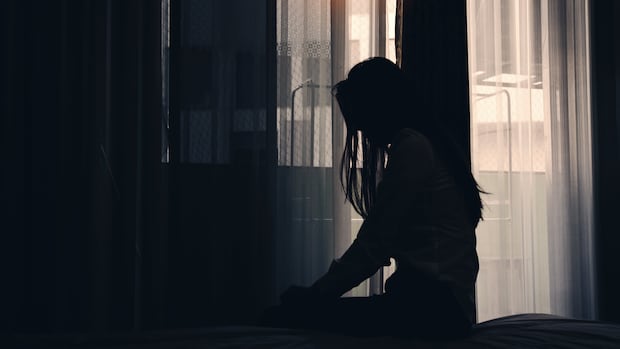Here's how Windsor hotels are training staff to recognize signs of human trafficking
They are promoting a free course for staff and managers called Not in Our Hotel
Hotel and motel staff can play a vital role in recognizing the signs of human trafficking, the chair of the Ontario Restaurant Hotel and Motel Association says.
Dharmesh Patel says he's particularly encouraging Windsor owners of independent hotels who don't have access to corporate training programs on the topic to take advantage of a free course for staff and managers called Not in Our Hotel.
The course teaches students to spot the signs of possible human trafficking and to safely report them, said Patel, who is also the general manager of the Quality Inn Leamington.
"So if someone's adamant about paying in cash or doesn't have a bank issued credit card," he said.
"Then you're also looking for things like … if you see signs of fear on the people that are with them."
Staff might also notice a person bringing in guests through a side door, he said.
The biggest red flag
But the biggest red flag is a lot of traffic to and from one room.
Windsor's status as a border city and travel hub makes it a target for traffickers, Patel added.
"This is being proactive and protecting vulnerable individuals. And then for us in hospitality, it's not just about the guest's comfort anymore. It's about guest safety and … community responsibility."

Just over 4,500 incidents of human trafficking were reported by police services in Canada between 2013 and 2023, according to Statistics Canada.
There were 570 in 2023 alone.
Ontario's rate of 2.1 incidents per 100,000 population puts it well above the national average of 1.4 per 100,000.
Trafficking activity at hotels appeared to die down at the height of the COVID-19 pandemic when hotels had much stricter controls on how people came and went, Patel said.
But now, he added, authorities tell him it's on the upswing again.
"A lot of this happens or originates for some reason from the Montreal area coming down the 401, and then they make stops along the way," he said.
"So they'll hit up different cities in smaller secondary markets as they make their way."
Training staff isn't about putting them in dangerous situations, he said.
It's simply about letting them know when to alert authorities about possible suspicious activity.
But he said it's also about making hotel owners responsible and accountable for what they allow to happen on their properties.
"If none of us rent to these people … then they don't have anywhere to go, right? And that obviously is going to help the cause," he said.
"Then it's not happening here anymore, which is our ultimate goal."
The executive director of Legal Assistance of Windsor said she's always happy when sectors like the hospitality industry realize they have a role in preventing human trafficking.
And ongoing training is really important, Shelley Gilbert said.
"The issue of trafficking really is evolving," she said. "So having ongoing conversations about what people are hearing ... so that they can be prepared is really important."
Gilbert said it's critical to call police in emergency situations, but a range of strategies are needed to help victims.
"We've seen other strategies where there's a particular sign up with … 'If you're in trouble, ask for Mary for instance,'" she said by way of example.
But ultimately, she added, victims trying to flee traffickers need housing, income support, training, mental health and trauma support.
"Most of the people that we've worked with, this is unfortunately not the first experience of violence and exploitation that they've experienced in their lives," Gilbert said.
"In order to help someone to really begin healing and changing some of those things, they need the resources and support."


